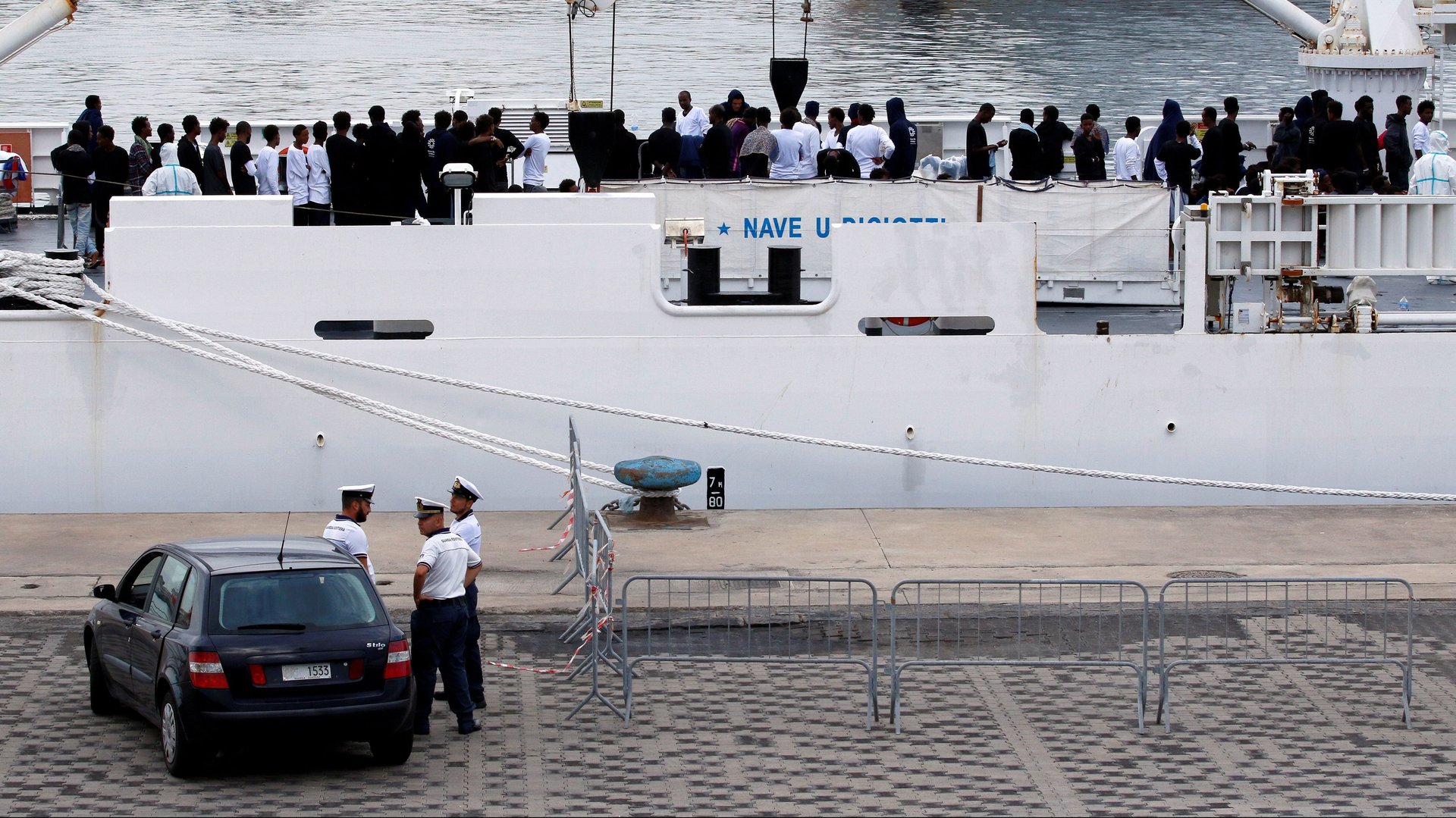Italy’s new government says it’ll fight immigration by helping China invest in Africa
Italy’s right-wing populist government, elected on a eurosceptic, anti-establishment, anti-immigration platform, has put forward a number of “tough on migrants” policies since coming to power in early June. But one idea in particular, shared this week in the announcement of a new task force, shifts the whole debate a few notches.


Italy’s right-wing populist government, elected on a eurosceptic, anti-establishment, anti-immigration platform, has put forward a number of “tough on migrants” policies since coming to power in early June. But one idea in particular, shared this week in the announcement of a new task force, shifts the whole debate a few notches.
On Monday (Aug. 20), the economic-development ministry announced Task Force China (link in Italian), which will promote Chinese investment and partnerships in Italy. The announcement details how Italy plans to ensure that more Chinese investment flows into the country through tax rebates and other incentives, and that Italian companies are included in infrastructure projects linked to China’s “Belt and Road” initiative.
Most striking is the announcement’s last bullet point, which reads: “Strengthen the cooperation with China in Africa. China can help Italy solve the immigration problem by helping Africa.” The reasoning is that Chinese investments foster African growth, and hence stop the need for emigration. This echoes the “let’s help them in their own homes” (link in Italian) slogan long adopted by Italian politicians confronted with populist anti-migrant sentiment, but it introduces a novel twist: Let’s help China help them. No specifics on how to do this are offered in the announcement.
Heading the new task force is Michele Geraci, the undersecretary of economic development. Known for his uncritical stance toward the Asian giant, Geraci once presented China, in a now-infamous blog post (link in Italian), as an example to follow on everything from public security to economics to migration (which in China’s case has been mostly internal). The post sparked an outraged response from Italian scholars of China, who argued against the idea of a Chinese panacea.
Criticism not withstanding, Geraci has now put forward, as government policy, the fairly untested idea of helping a foreign country invest in a whole continent. In the announcement, no mention is made of consultations with African heads of state on the idea. Also left out are the controversies surrounding Chinese investments overseas, which many believe are leading countries into debt traps, including in Africa.
Meanwhile the coalition government formed by the League and the Five Star Movement has continued with other anti-immigrant measures. Interior minister Matteo Salvini, riding his “Italians first” slogan, has not only refused to condemn the growing number of racially motivated attacks in Italy, but also blocked African migrants from disembarking at Italian ports. That’s earned him a reputation as “Europe’s Donald Trump” among critics.
But Trump, of course, isn’t promoting Chinese investment in Latin America as a way to slow immigration into the United States.